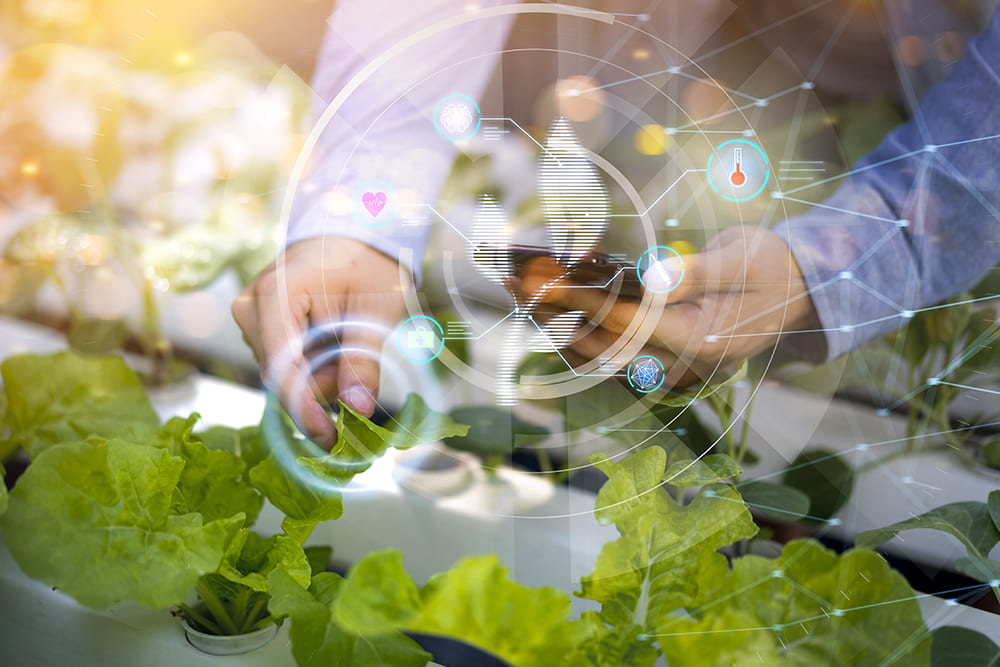Use Artificial Intelligence To Identify Any Plant
9 November 2021
Some people have a “green thumb” that gives them a natural knack for gardening and identifying plants, trees, succulents, and more. Many of us need a little more help – and now that assistance is available right from phones and mobile devices, thanks to artificial intelligence.
Researchers have created AI apps that can help anyone identify a plant by snapping a photo of it with a smartphone camera. The apps can even make your garden grow and help your plants thrive by telling you when your green friends need more water or fertilizer.

How Plant Identification Apps Work
Now you can take a photo of any plant and get an immediate and highly accurate identification of the plant type and its features.
Apps like PictureThis and Plantsnap can identify and help people care for thousands of plant species with artificial intelligence and machine learning technology.
The apps train their deep learning models with millions of photos taken by plant lovers and botanists all over the world. To identify a plant, users snap a photo of the plant, and the app identifies it in seconds. Some of the apps not only give the genus and common name of the plant, but also information on its origin, maturity size, and any flowers or fruit associated with that plant.
PlantSnap, one of the most comprehensive apps, has over 600,000 plants in its database and recognizes 90% of all known worldwide species of plants and trees.
PictureThis is a similar plant identification app that also helps users detect issues and care for sick or struggling plants. Users can take a picture of the sick part of plants and get diagnosis and treatment suggestions.
Fighting Invasive Species with AI
Environmental scientists in the UK have been looking for ways to fight invasive plants that cause damage to natural landscapes and building foundations, but some species can be difficult to spot.
Now artificial intelligence researchers are hoping to train machine learning algorithms to recognize invasive plants, so they minimize damage.
Last year, researchers from the UK Centre for Ecology and Hydrology (UKCEH) launched a pilot program to collect images from cameras placed on top of vehicles, then label those images with a GPS tag and use them for training their machine learning algorithms. Vehicle-mounted cameras are a great choice for this project because many invasive species live along vegetated roadsides.
One of the scientists' first tasks is to train their model to recognize Japanese knotweed, a particularly harmful plant in the UK. Once the knotweed is identified, researchers can remove it from vulnerable areas.
If successful, this type of program could be adapted by other countries that are battling invasive plant species.
Highly Sophisticated AI Systems
The artificial intelligence technology behind the latest plant identification apps is particularly impressive because it has learned to recognize and categorize over 300,000 classes. That kind of volume requires millions of training images, particularly because so many plants look similar to each other.
While the app experiences are simple and intuitive, and the results that users get back are useful and accurate, the technology happening behind the scenes is powerful. It puts the vast databases of the natural world right in the palms of our hands – which is a tremendous breakthrough for hobbyists, serious gardeners, and environmentalists alike.
Related Articles
8 AI Ethics Trends That Will Redefine Trust And Accountability In 2026
By now, “smart” versions exist of just about every home appliance, gadget and gizmos we can think of. However, manufacturers continue[...]
The 7 Banking And Fintech Trends That Will Define 2026
By now, “smart” versions exist of just about every home appliance, gadget and gizmos we can think of. However, manufacturers continue[...]
The 8 Biggest Healthcare Technology Trends To Watch In 2026
By now, “smart” versions exist of just about every home appliance, gadget and gizmos we can think of. However, manufacturers continue[...]
Why The AI Supercycle Will Fail Without Advanced Networks
By now, “smart” versions exist of just about every home appliance, gadget and gizmos we can think of. However, manufacturers continue[...]
The Two-Tier AI Economy: Why Half Of Companies Are Being Left Behind And How To Close The Gap
By now, “smart” versions exist of just about every home appliance, gadget and gizmos we can think of. However, manufacturers continue[...]
5 AI-Era Skills Mistakes That Will Cost Your Business Millions In 2026
By now, “smart” versions exist of just about every home appliance, gadget and gizmos we can think of. However, manufacturers continue[...]
Sign up to Stay in Touch!
Bernard Marr is a world-renowned futurist, influencer and thought leader in the fields of business and technology, with a passion for using technology for the good of humanity.
He is a best-selling author of over 20 books, writes a regular column for Forbes and advises and coaches many of the world’s best-known organisations.
He has a combined following of 4 million people across his social media channels and newsletters and was ranked by LinkedIn as one of the top 5 business influencers in the world.
Bernard’s latest book is ‘Generative AI in Practice’.










Social Media